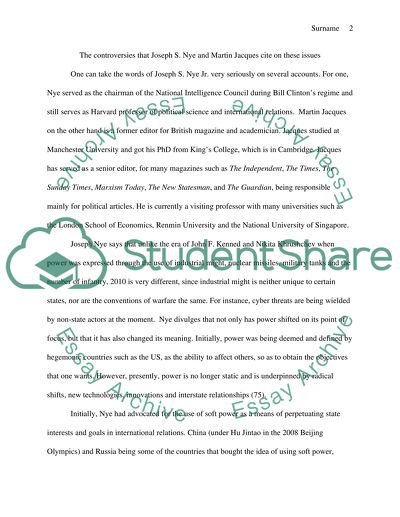Cite this document
(Analysis of Studies about the Rise of China Power and Decline of U.S Assignment, n.d.)
Analysis of Studies about the Rise of China Power and Decline of U.S Assignment. Retrieved from https://studentshare.org/politics/1594958-the-future-of-power-when-china-rules-the-world-rise-of-china-power-and-decline-of-us-power
Analysis of Studies about the Rise of China Power and Decline of U.S Assignment. Retrieved from https://studentshare.org/politics/1594958-the-future-of-power-when-china-rules-the-world-rise-of-china-power-and-decline-of-us-power
(Analysis of Studies about the Rise of China Power and Decline of U.S Assignment)
Analysis of Studies about the Rise of China Power and Decline of U.S Assignment. https://studentshare.org/politics/1594958-the-future-of-power-when-china-rules-the-world-rise-of-china-power-and-decline-of-us-power.
Analysis of Studies about the Rise of China Power and Decline of U.S Assignment. https://studentshare.org/politics/1594958-the-future-of-power-when-china-rules-the-world-rise-of-china-power-and-decline-of-us-power.
“Analysis of Studies about the Rise of China Power and Decline of U.S Assignment”, n.d. https://studentshare.org/politics/1594958-the-future-of-power-when-china-rules-the-world-rise-of-china-power-and-decline-of-us-power.


